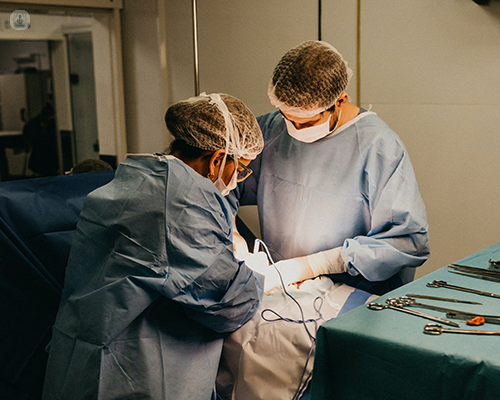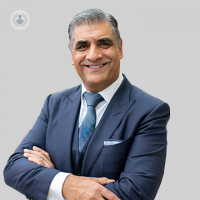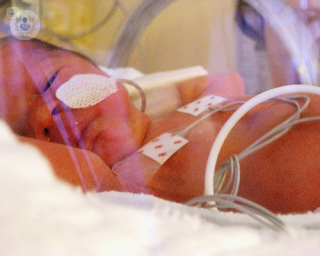Thoracic surgery
Mr Inderpaul Birdi - Cardiothoracic surgery
Created on: 11-13-2012
Updated on: 03-30-2023
Edited by: Carlota Pano
What is thoracic surgery?
Thoracic surgery is a field of surgery that focuses on the treatment of conditions which affect the organs inside the chest cavity. A thoracic surgeon's expertise is in performing lung, oesophagus, mediastinum or chest wall surgery.
Common thoracic surgery procedures include:
- Pneumonectomy or lobectomy: Removal of the part of the lung affected by a neoplasm
- Oesophagectomy: Removal of part of the oesophagus affected by a tumour
- Thoracoscopy: Endoscopic examination of the pleural cavity
- Bronchoscopy: Examination of the lungs and possible removal of a biopsy
- Oesophagoscopy
- Lung transplant

What conditions does it treat?
Thoracic surgery aims at surgically treating all diseases affecting bones and tissues of the chest. The most commonly conditions treated by thoracic surgeons are:
- Neoplasms (i.e. Lung or oesophageal cancer)
- Hiatal hernia
- Dysphagia
- Emphysema
- Gastroesophageal reflux disease
Other conditions affecting the heart, vessels and heart valves, such as atrial fibrillation, heart failure, arterial stenosis, or valvular stenosis, congenital malformations and thoracic aortic aneurysm, are usually treated by a surgeon trained in heart surgery or vascular surgery.
When do I need to see a thoracic surgeon?
You are most likely to see a thoracic surgeon upon referral from a GP, or when monitoring your post-operative progress.





